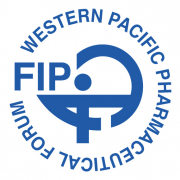Pharmacist vs Doctor … who prescribes?
3 Aug, 2014
reference:http://www.mps.org.my/newsmaster.cfm?&menuid=36&action=view&retrieveid=3920
By Mimi Syed Yusof – 2 August 2014 @ 7:00 AM
The polemics of who better to dispense medication, doctors or pharmacists, enters its third day in the Letters section of the New Straits Times today (Aug 2).
While it has been agreed that doctors and pharmacists should complement each other, they have not exactly been forthcoming and generous in the separation of roles, according to the letter writers.
The debate was sparked by Assoc. Prof Dr Mohamed Azmi Hassali’s letter (NST, July 11) highlighting the role of pharmacists in dispensing medication. He stressed that the separation of roles was vital to prevent mishaps.
Dr Mohamed is the deputy dean, (Student Affairs & Networking), School of Pharmaceutical Sciences, Universiti Sains Malaysia. He had said that from time immemorial, dispensing of medicines was considered a professional obligation of the pharmacists. The Arabs separated the art of apothecary and physicians in the 8th century and the Europeans followed through with the edict of Frederick II of Hohenstaufen in 1240.
For many centuries, in most countries in the world, other health professionals are not allowed to dispense medication. In Malaysia, in 1985, doctors and pharmacists had a formal understanding to recognise dispensing as the professional role of pharmacists.
However, because of the severe shortage of pharmacists, doctors, especially general practitioners (GPs), are legally allowed to dispense medications.
Now, with at least 2,000 new pharmacy graduates here every year and more than 19 local universities offering pharmacy degree programmes, pharmacists are ready to do what they have been trained for.
On July 28, Datuk Dr Kuljit Singh of Petaling Jaya responded that while Dr Mohamed enumerated the roles of pharmacists in dispensing, and the details of the processes, he failed to address the main end user – the patient.
The issue of increase in the cost of primary healthcare and the inconveniences have not been discussed.
Furthermore, the case of pharmacists having an exclusive role of dispensing medication has caused concern among medical providers and patients. The drawback is that a patient will have to visit two places — the doctor’s clinic and the pharmacy.
Patients worry if the exact medication will be available in pharmacies or if pharmacists will dispense alternatives.
For almost 20 years, pharmacists have been fighting for the return of their right to dispense medications. The Health Ministry did plan to conduct a pilot project on the separation of functions between clinics and pharmacies in selected major towns before implementing it nationwide. However, even before the project could kick off, there have been protests by doctors.
Malaysia has one of the best primary healthcare services (public and private) in Asia and maybe in the world. Anyone feeling unwell can walk into any government polyclinic or outpatient clinic, including 1Malaysia clinics, and will be attended to the same day by medical personnel although there may be a bit of a wait. We have enjoyed a good health-care system since independence despite some shortcomings.
Dispensing of medicine by pharmacists and not doctors is not just a western practice. It is the norm in several Asian countries, including India, Korea, the Philippines and even Indonesia. It became legal in Indonesia in 1964, the Philippines in 1969, India in 1988, and South Korea in 2000.
Follow the debate in our Letters section today.
Mimi Syed Yusof is NST Letters to editor’s, editor
– See more at: http://www.mps.org.my/newsmaster.cfm?&menuid=36&action=view&retrieveid=3920#sthash.AjkeU6Rg.dpuf
